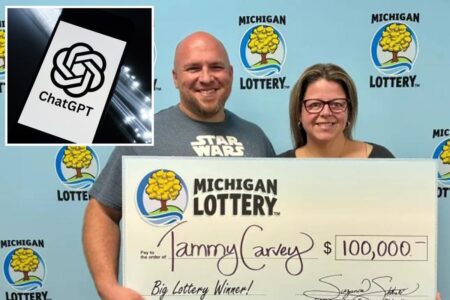Two-thirds of Americans who’ve shared their mental health struggles said the person they turned to wasn’t able to help them cope.
When life gets overwhelming, nearly half of Americans do what comes naturally: they turn to friends and family for support, a poll of 2,000 adults found.
However, 32 percent didn’t get the outcome they hoped for because the individual they turned to was dealing with their own challenges.
And a quarter felt like the individual didn’t understand what they were going through.
However, while 33 percent seek emotional support at least weekly, 74 percent worry they’re being a burden on those around them.
Subsequently, feeling like a burden has stopped 69 percent speaking up at all.
The research was commissioned by BetterHelp to mark the launch of its Therapist Match Commitment [https://www.betterhelp.com/therapist-match-commitment/], which aims to ensure every client is paired with a professional who’s the right fit for their specific needs to drive quality outcomes.
Fernando Madeira, president of the online therapy provider, said: “While our loved ones provide invaluable emotional support, this data reveals a clear gap between the support people need and what even the most caring friends and family can realistically provide.
“Many of us simply aren’t equipped with the training or emotional tools to help someone manage life’s many challenges. And when both people are already under stress, these conversations can leave everyone feeling overwhelmed.”
But even when friends and family do encourage their loved ones to seek therapy (49 percent), many still don’t follow through (20 percent).
Affordability (44 percent) was the main barrier, followed by 29 percent believing they could manage on their own.
And 75 percent of respondents said that difficulty finding the “right” therapist prevented them from getting mental health support.
Yet even among those who sought professional help, 32 percent struggled to find a therapist who was the right fit – leading 74 percent to skip sessions or stop therapy altogether.
Fernando Madeira from BetterHelp, which reported 72 percent of its clients had a reduction in symptoms in 12 weeks, added: “A negative or mismatched therapy experience doesn’t just end that relationship, it can end someone’s willingness to try therapy altogether.
“We hear from people all the time who say they tried therapy once, it didn’t click, and they assumed therapy just ‘wasn’t for them’ or that their problems were too complicated to fix. The reality is, they may just have not yet found the right therapist yet.
“That’s why we’ve invested so heavily in our matching process – which draws on over a decade of experience in data-driven, tailored matching. And we really see the difference that a good match can make: More than 3 out of 4 people continued working with their therapist after getting matched this year and 82 percent are likely to recommend their therapist to others. That’s the kind of therapeutic connection that changes lives.”
Read the full article here

















